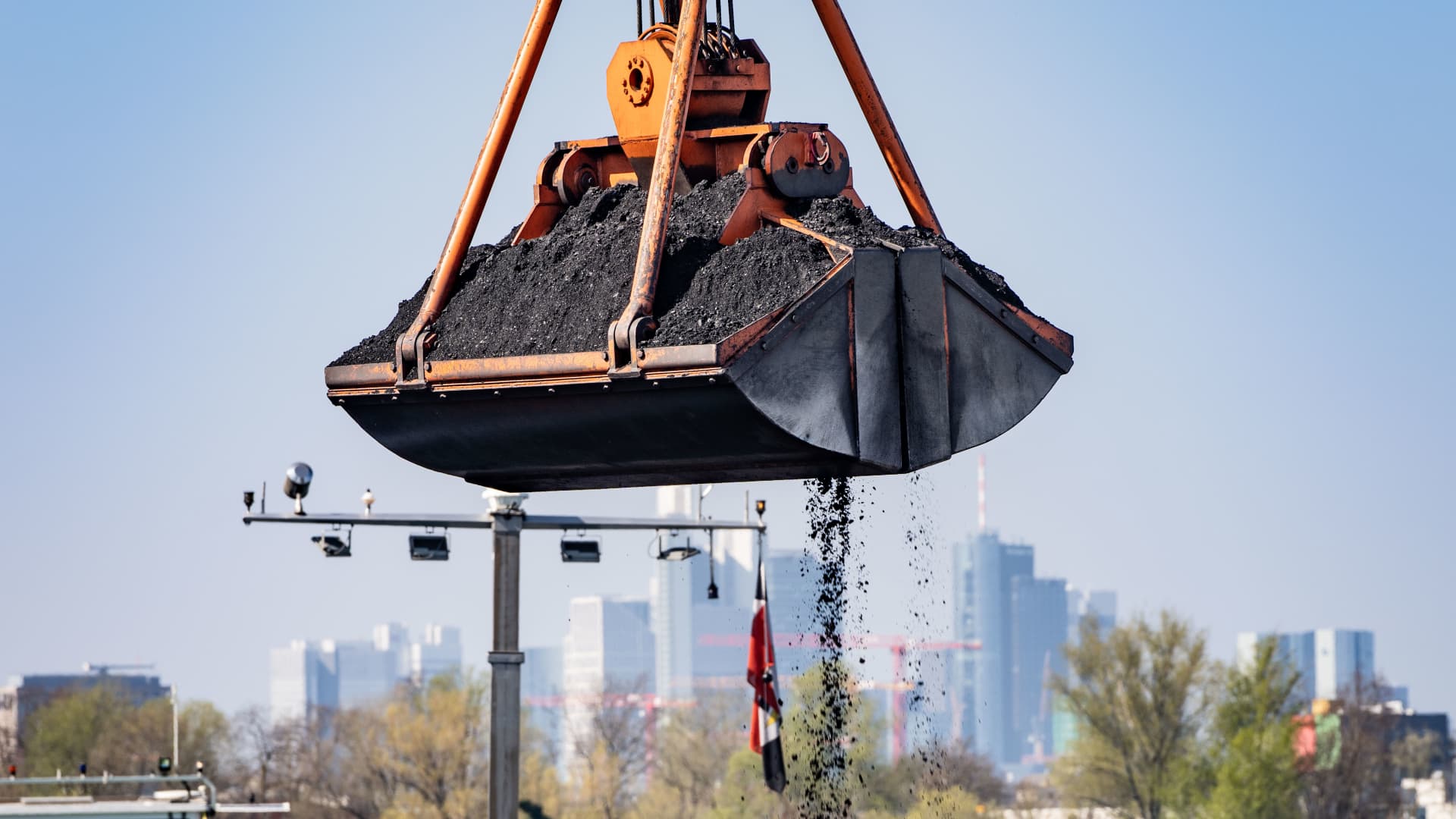French President Emmanuel Macron has urged the EU to ban Russian coal as part of a wave of new sanctions to further isolate the Kremlin.
Frank Rumpenhorst | Picture Alliance | Getty Images
LUXEMBOURG – The European Commission will propose to ban Russian coal as part of a new round of sanctions against the Kremlin over its unprovoked invasion of Ukraine.
Two EU officials, who declined to be named due to the sensitivity of the talks, told CNBC on Tuesday that the EU executive would propose coal be included in the penalties.
The imposition of sanctions on Russia’s energy sector has been a challenge for the EU given the high dependency of some member states on the country’s energy supplies.
According to the European Statistics Office, the EU imported 19.3% of its coal from Russia in 2020. It imported 36.5% of its oil from the country and 41.1% of its natural gas in the same year.
However, mounting evidence of war crimes committed by Russian forces in Ukraine has prompted the Commission to propose including coal in its fifth package of sanctions against Moscow.
The new package of measures will be discussed by the European ambassadors on Wednesday. Final sanctions approval will come after the talks, and proposals could change before the ambassadors meet.
Pressure is mounting for Europe to target Russia’s energy sector as energy-importing countries continue to feed President Vladimir Putin’s war chest with oil and gas revenues on a daily basis.
However, the issue is dividing the EU, with some nations supporting a ban on Russian energy imports while others argue that such a move would harm their own economies more than Russia’s.
France’s President Emmanuel Macron, for example, said Monday that the bloc should impose sanctions on Russian oil and coal following reports of atrocities in towns near Ukraine’s capital Kyiv.
However, Germany seems less convinced that such a move is possible, especially when it comes to natural gas supplies.
“We want to be [in the] less dependent on Russian energy imports to the European Union in the short term and Germany will support further sanctions against Russia,” German Finance Minister Christian Lindner told CNBC in Luxembourg on Monday.
“We need to put more pressure on Putin and we need to isolate Russia – we need to cut all economic ties with Russia, but right now it’s not possible to cut gas supplies.”

